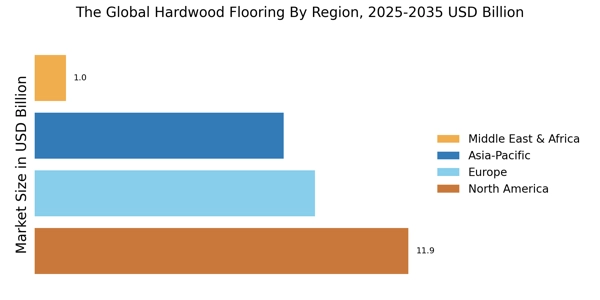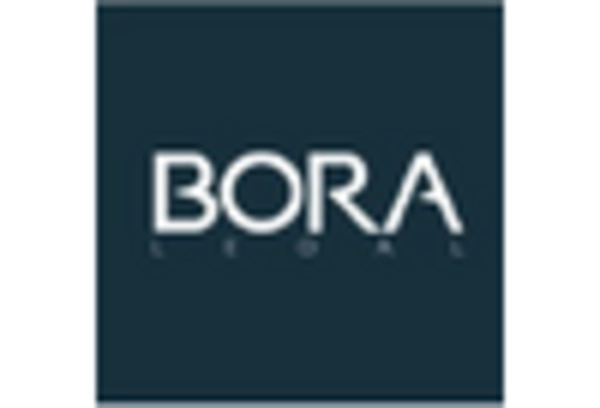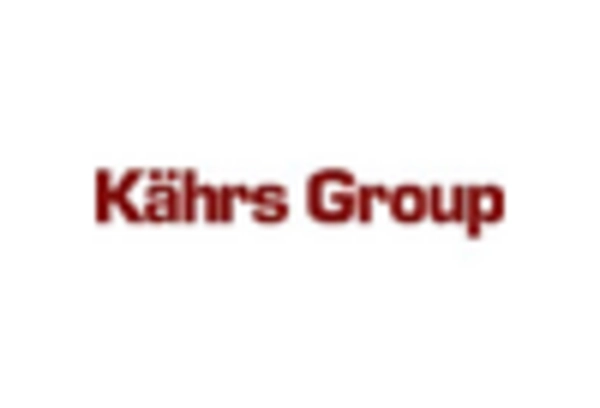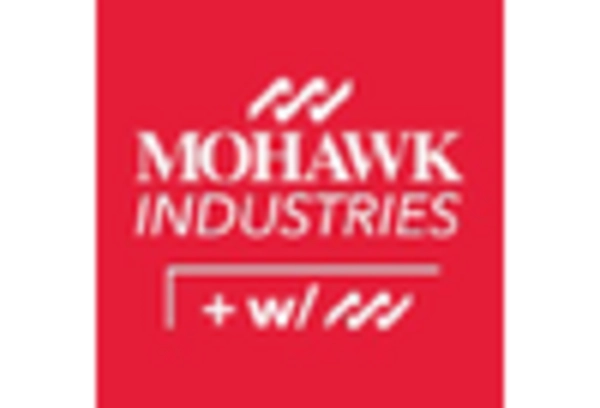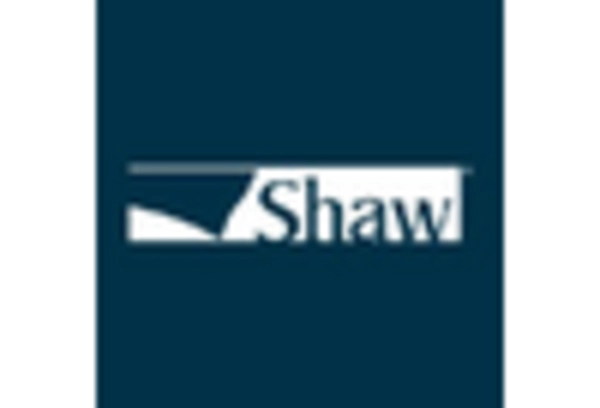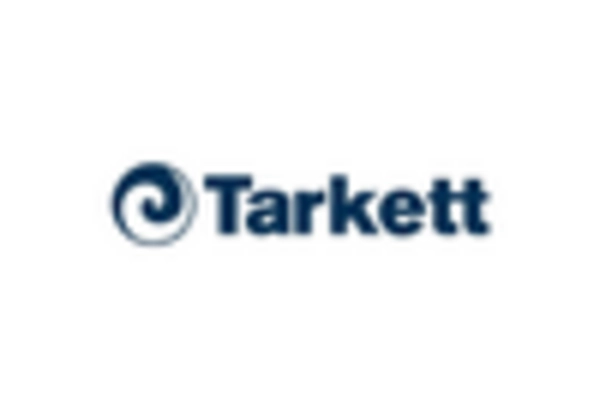Sustainability Focus
The increasing emphasis on sustainability is a pivotal driver for The Global Hardwood Flooring Industry. Consumers are becoming more environmentally conscious, leading to a heightened demand for eco-friendly flooring options. This trend is reflected in the growing preference for hardwood sourced from sustainably managed forests. According to industry reports, the market for sustainable hardwood flooring is projected to grow significantly, with a compound annual growth rate of approximately 5% over the next five years. Manufacturers are responding by adopting sustainable practices, such as using reclaimed wood and ensuring responsible sourcing. This shift not only caters to consumer preferences but also aligns with regulatory frameworks aimed at reducing environmental impact. As a result, the sustainability focus is likely to shape product offerings and marketing strategies within The Global Hardwood Flooring Industry.
Aesthetic Versatility
Aesthetic versatility is a crucial driver influencing consumer choices in The Global Hardwood Flooring Industry. The diverse range of styles, colors, and finishes available in hardwood flooring allows homeowners and designers to create unique and personalized spaces. This versatility caters to various design preferences, from traditional to contemporary aesthetics. Market analysis reveals that the demand for customizable flooring solutions is on the rise, with consumers seeking products that complement their interior design themes. Additionally, the ability to refinish hardwood floors enhances their longevity and adaptability, further appealing to consumers. As trends in home decor evolve, the aesthetic versatility of hardwood flooring is likely to remain a key factor in driving sales and influencing purchasing decisions within The Global Hardwood Flooring Industry.
Rising Disposable Income
Rising disposable income levels across various regions are contributing to the growth of The Global Hardwood Flooring Industry. As consumers experience increased financial stability, they are more inclined to invest in high-quality flooring options that enhance the value of their homes. This trend is particularly evident in emerging markets, where urbanization and economic development are driving demand for premium hardwood flooring products. Market data suggests that the luxury segment of hardwood flooring is expanding, with consumers willing to pay a premium for superior quality and design. This shift in consumer behavior indicates a growing appreciation for the aesthetic and functional benefits of hardwood flooring, positioning it as a desirable choice in home renovations and new constructions. Consequently, rising disposable income is likely to play a significant role in shaping market dynamics within The Global Hardwood Flooring Industry.
Technological Advancements
Technological advancements are reshaping The Global Hardwood Flooring Industry, introducing innovative products and manufacturing processes. The integration of advanced technologies, such as digital printing and enhanced finishing techniques, allows for greater design flexibility and improved durability. For instance, the introduction of engineered hardwood flooring has gained traction due to its resistance to moisture and temperature fluctuations, making it suitable for various environments. Market data indicates that engineered hardwood is expected to account for a significant share of the market, driven by its practicality and aesthetic appeal. Furthermore, smart flooring solutions, which incorporate sensors and connectivity features, are emerging, appealing to tech-savvy consumers. These advancements not only enhance product performance but also create new opportunities for market players to differentiate themselves in the competitive landscape of The Global Hardwood Flooring Industry.
Increased Renovation Activities
Increased renovation activities are significantly impacting The Global Hardwood Flooring Industry. As homeowners seek to enhance their living spaces, the demand for hardwood flooring is witnessing a notable uptick. Renovation projects often prioritize flooring upgrades, as they can dramatically transform the overall aesthetic and functionality of a home. Market trends indicate that a substantial portion of homeowners is opting for hardwood flooring due to its durability and timeless appeal. Furthermore, the rise in home improvement television shows and online platforms has inspired consumers to undertake renovation projects, further fueling demand. This trend is particularly pronounced in regions with aging housing stock, where homeowners are investing in modernizing their interiors. As renovation activities continue to rise, The Global Hardwood Flooring Industry is poised to benefit from this growing consumer interest.



